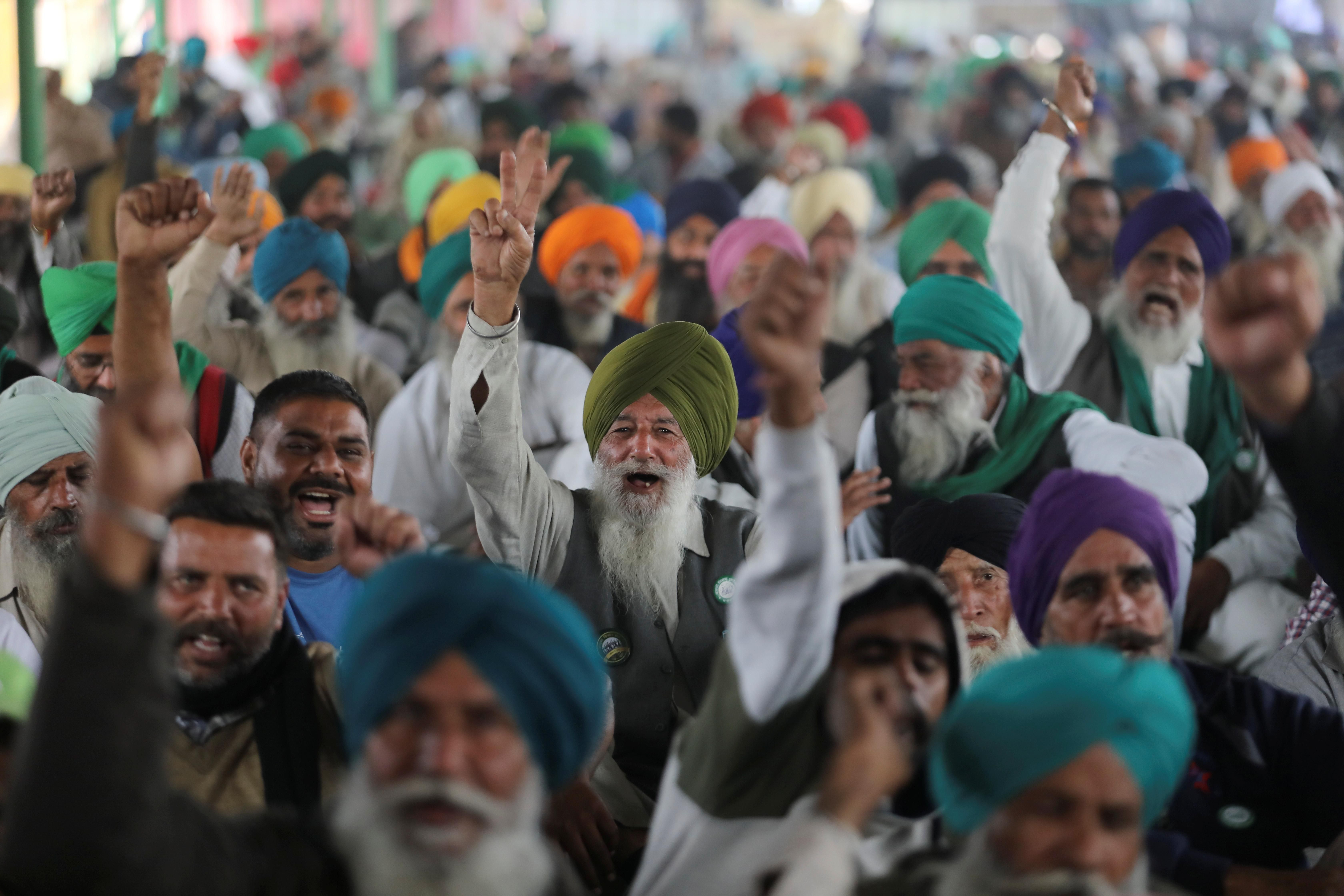News
December 09, 2021
Indian farmers pack up their tents — for now. For over a year, tens of thousands of Indian farmers have been protesting three agriculture laws that they say would give more power to big agribusiness and reduce farmers’ incomes. (The government says they rather aim to streamline an outdated and inefficient sector.) Now, farmers’ unions say they will call off the protests — and shut down the makeshift protest camp they built on the outskirts of Delhi — after PM Narendra Modi agreed to their demands. The farmers want the government to set a minimum price for most farm produce, and withdraw criminal charges for farmers arrested during protests. Modi backing down is a big deal because agriculture is the primary source of income for nearly 60 percent of Indians, and dozens of farmers have been killed in confrontations with police over the past year. Protest leaders will meet with government officials on January 15 to assess the plan’s progress. But if the government doesn’t follow through on its promises, the farmers say they’ll go back to the picket line.
Evergrande on brink of default. Fitch became on Thursday the first global ratings agency to declare that Evergrande will likely default on its debt outside China. This means that international creditors can expect to get stiffed by the Chinese property developer, which on Monday missed a final deadline to cough up some $82.5 million to foreign investors. Does this mean that Evergrande will default on all the roughly $300 billion it owes, mostly inside China? The company and the Chinese government won't confirm it, but Evergrande's situation is looking gloomier by the day. Meanwhile, China's central bank has already loosened the rules for banks to keep cash on hand in order to inject some $188 billion into the economy. President Xi Jinping hopes that'll be enough to avoid the credit crunch that an Evergrande default could trigger in China's real estate industry and the broader financial sector amid an already sluggish economy.
Saudi camels get Botox. At the annual King Abdulaziz Camel Festival in Saudi Arabia, contestants are judged by, among other things, the size and shape of their lips, cheeks, heads, and knees. But each year, dozens of the humped mammals get disqualified because their owners inject them with Botox in order to have a better shot at the $66 million in prize money. More than 40 camels were thrown out of the 2021 edition. What’s more, the cheats have gotten more sophisticated by stretching out lips and noses, using hormones to up muscle mass, inflating body parts with rubber bands, and using fillers to relax tense faces. Think this story is fake? It isn’t. In fact, we first reported on this cruel trend almost four years ago.
More For You
- YouTube
In this Quick Take, Ian Bremmer addresses the killing of Alex Pretti at a protest in Minneapolis, calling it “a tipping point” in America’s increasingly volatile politics.
Most Popular
- YouTube
Who decides the boundaries for artificial intelligence, and how do governments ensure public trust? Speaking at the 2026 World Economic Forum in Davos, Arancha González Laya, Dean of the Paris School of International Affairs and former Foreign Minister of Spain, emphasized the importance of clear regulations to maintain trust in technology.
- YouTube
Will AI change the balance of power in the world? At the 2026 World Economic Forum in Davos, Ian Bremmer addresses how artificial intelligence could redefine global politics, human behavior, and societal stability.
Ian Bremmer sits down with Finland’s President Alexander Stubb and the IMF’s Kristalina Georgieva on the sidelines of the World Economic Forum to discuss President Trump’s Greenland threats, the state of the global economy, and the future of the transatlantic relationship.
© 2025 GZERO Media. All Rights Reserved | A Eurasia Group media company.
